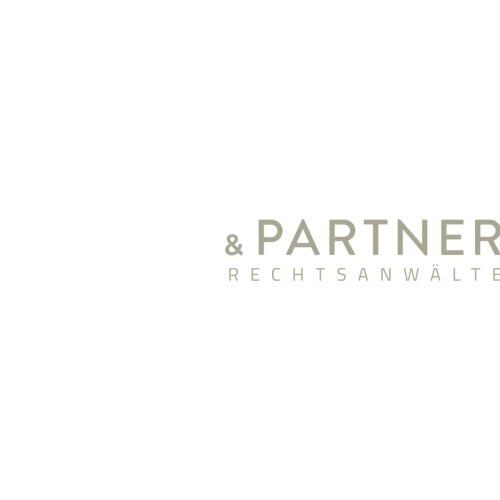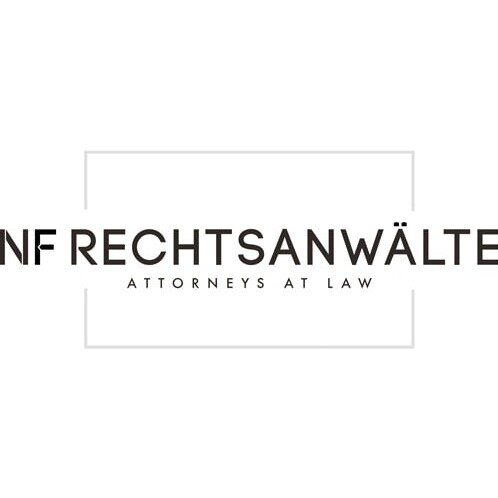Best Bankruptcy & Debt Lawyers in Vienna
Share your needs with us, get contacted by law firms.
Free. Takes 2 min.
List of the best lawyers in Vienna, Austria
About Bankruptcy & Debt Law in Vienna, Austria
Bankruptcy and debt laws in Vienna, Austria, are governed primarily by the Austrian Insolvency Code (Insolvenzordnung). These laws provide a framework for individuals and businesses facing financial difficulties to either restructure their debts or liquidate their assets to pay off creditors. The legal process aims to balance the interests of debtors who need relief from insurmountable debt obligations and creditors who seek to recover owed amounts. The laws in Vienna are designed to be fair and systematic, ensuring that the process remains transparent and equitable for all parties involved.
Why You May Need a Lawyer
Navigating the complexities of bankruptcy and debt can be challenging without expert assistance. Here are some common situations where legal help might be necessary:
- You're facing foreclosure or repossession of assets.
- Creditors are aggressively seeking repayment through legal means.
- You need advice on whether to declare bankruptcy or explore other debt-relief options.
- You require assistance in restructuring your debts to manage payments better.
- You are a business owner considering insolvency procedures.
- You have been accused of fraudulent behavior by your creditors.
- You need to negotiate a settlement with creditors.
Local Laws Overview
Key aspects of local laws relevant to bankruptcy and debt in Vienna include:
- Types of Insolvency: Austrian law distinguishes between insolvency for companies and personal bankruptcy for individuals.
- Initiating Bankruptcy: Bankruptcy can be initiated by the debtor or by creditors. Specific criteria must be met for the court to declare bankruptcy.
- Debt Restructuring: Debtors may propose a restructuring plan, which must be approved by a majority of creditors and the court.
- Asset Liquidation: In the case of liquidation, a trustee (Insolvenzverwalter) is appointed to manage the sale of assets and distribute proceeds to creditors.
- Discharge of Debt: If a debtor meets certain conditions and follows specific procedures, they may be discharged from remaining debts.
- Protection Against Creditors: The law provides mechanisms to protect debtors from undue pressure or unfair practices by creditors.
Frequently Asked Questions
What is the difference between personal bankruptcy and insolvency for companies?
Personal bankruptcy is designed for individuals who cannot meet their debt obligations, whereas insolvency for companies involves legal proceedings for businesses that are unable to pay their creditors. The outcomes and procedures differ based on whether the debtor is an individual or a business entity.
How does one declare bankruptcy in Vienna?
To declare bankruptcy, you must file a petition with the appropriate court. This petition can be voluntary (filed by the debtor) or involuntary (filed by creditors). The court will review your financial situation and decide whether to declare bankruptcy based on the submitted documents and evidence.
What role does a bankruptcy trustee play in the process?
A bankruptcy trustee (Insolvenzverwalter) is appointed to manage the debtor’s estate. The trustee oversees the liquidation of assets, repayment to creditors, and ensures that all legal procedures are followed properly.
Can all debts be discharged in bankruptcy?
No, certain debts are not dischargeable under Austrian law. These typically include alimony and child support obligations, fines, and certain tax debts.
What are the alternatives to declaring bankruptcy?
Alternatives include debt restructuring plans, negotiation of settlements with creditors, and other forms of financial reorganization. Consulting a lawyer can help you determine the best course of action based on your specific situation.
How long does the bankruptcy process take?
The length of the bankruptcy process varies depending on the complexity of the case, the amount of debt, and the number of creditors involved. It can take several months to several years to complete.
What happens to my assets during bankruptcy?
In bankruptcy, most of your assets may be liquidated to pay off creditors. However, certain essential assets may be exempt from liquidation, ensuring that you can maintain a basic standard of living.
Can I keep my home if I declare bankruptcy?
Whether you can keep your home depends on the specifics of your financial situation and the terms of your mortgage. Some home equity may be protected, but this varies on a case-by-case basis.
Is my credit rating affected by bankruptcy?
Yes, declaring bankruptcy will negatively impact your credit rating. The bankruptcy record can stay on your credit report for several years, affecting your ability to obtain new credit.
How can a lawyer help me with my debt situation?
A lawyer can provide valuable advice, represent you in court, negotiate with creditors on your behalf, help you prepare and file necessary documents, and guide you through the legal processes involved in both debt restructuring and bankruptcy.
Additional Resources
Here are some organizations and resources that can be helpful:
- Austrian Bar Association (ÖRAK): Provides a list of qualified lawyers specializing in bankruptcy and debt.
- Consumer Protection Agency (VKI): Offers advice and support for consumers facing financial difficulties.
- Credit Counseling Services (Schuldenberatung): Provide free and confidential advice on managing debt and financial problems.
- Federal Ministry of Justice (BMJ): Publishes information and resources related to insolvency proceedings.
Next Steps
If you need legal assistance with bankruptcy and debt in Vienna, Austria, here are the steps to follow:
- Assess Your Situation: Gather all relevant financial documents and assess your debts, assets, and overall financial status.
- Consult a Lawyer: Seek advice from a lawyer specializing in bankruptcy and debt to explore your options and develop a plan of action.
- File Necessary Documents: If you decide to proceed with bankruptcy or another debt relief option, your lawyer will help you prepare and file the required paperwork with the court.
- Attend Court Hearings: Be prepared to attend all court hearings and meetings with creditors as scheduled.
- Follow Legal Advice: Adhere to the recommendations of your lawyer and comply with all legal requirements and timelines.
Your journey through bankruptcy and debt relief can be complex, but with the right legal support, you can navigate it successfully and work towards financial stability.
Lawzana helps you find the best lawyers and law firms in Vienna through a curated and pre-screened list of qualified legal professionals. Our platform offers rankings and detailed profiles of attorneys and law firms, allowing you to compare based on practice areas, including Bankruptcy & Debt, experience, and client feedback.
Each profile includes a description of the firm's areas of practice, client reviews, team members and partners, year of establishment, spoken languages, office locations, contact information, social media presence, and any published articles or resources. Most firms on our platform speak English and are experienced in both local and international legal matters.
Get a quote from top-rated law firms in Vienna, Austria — quickly, securely, and without unnecessary hassle.
Disclaimer:
The information provided on this page is for general informational purposes only and does not constitute legal advice. While we strive to ensure the accuracy and relevance of the content, legal information may change over time, and interpretations of the law can vary. You should always consult with a qualified legal professional for advice specific to your situation.
We disclaim all liability for actions taken or not taken based on the content of this page. If you believe any information is incorrect or outdated, please contact us, and we will review and update it where appropriate.
Browse bankruptcy & debt law firms by service in Vienna, Austria
Vienna, Austria Attorneys in related practice areas.















